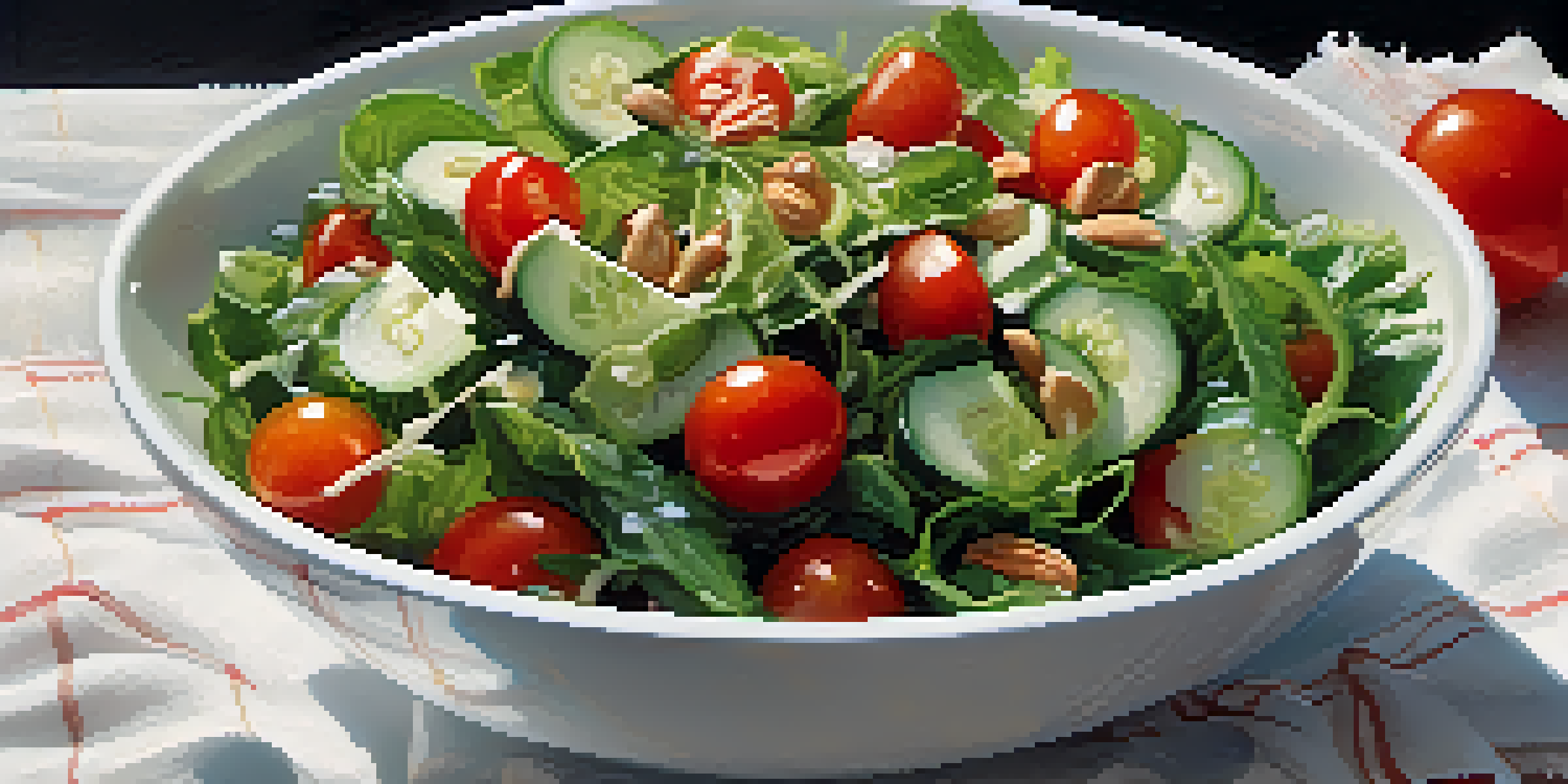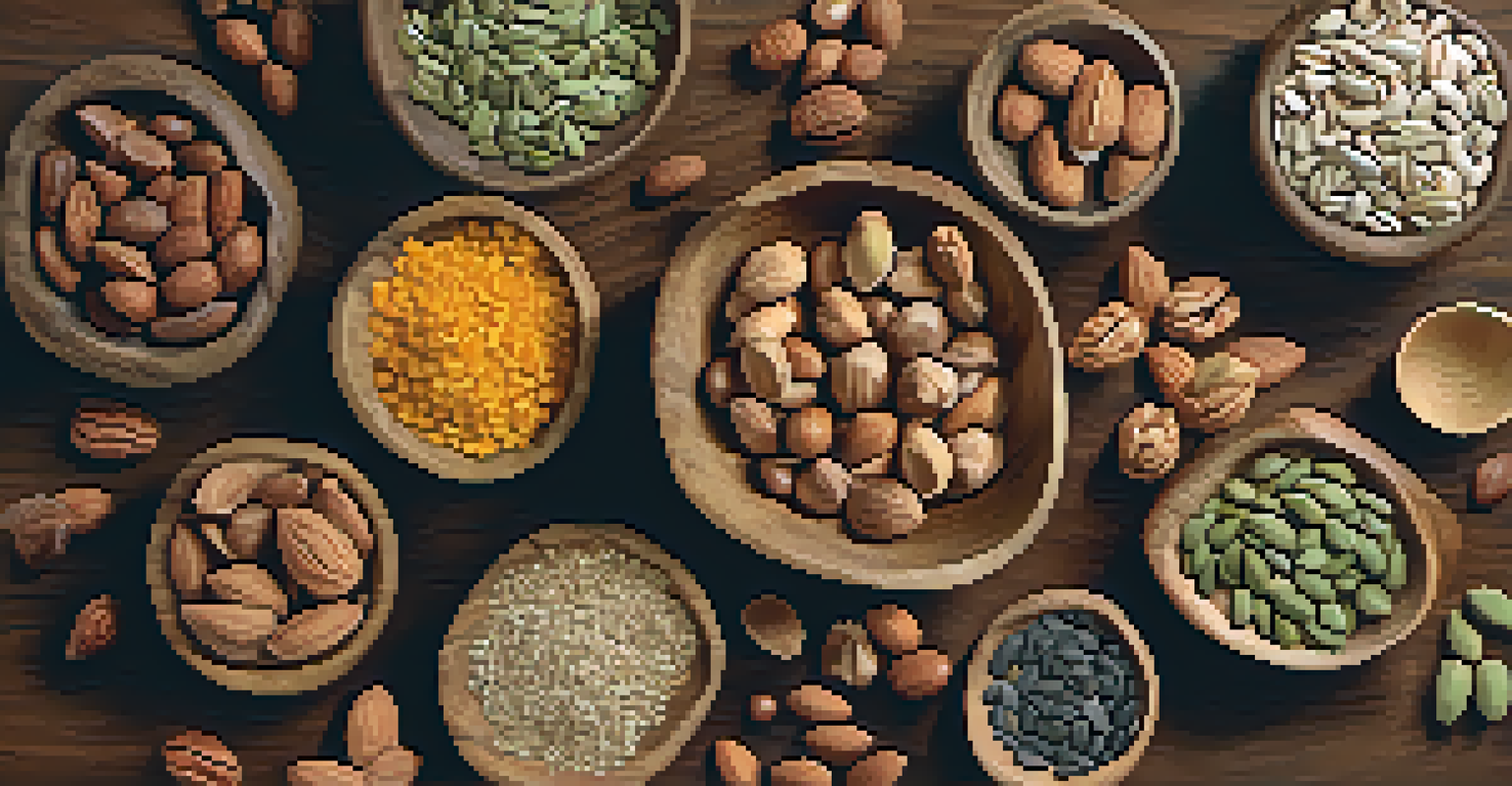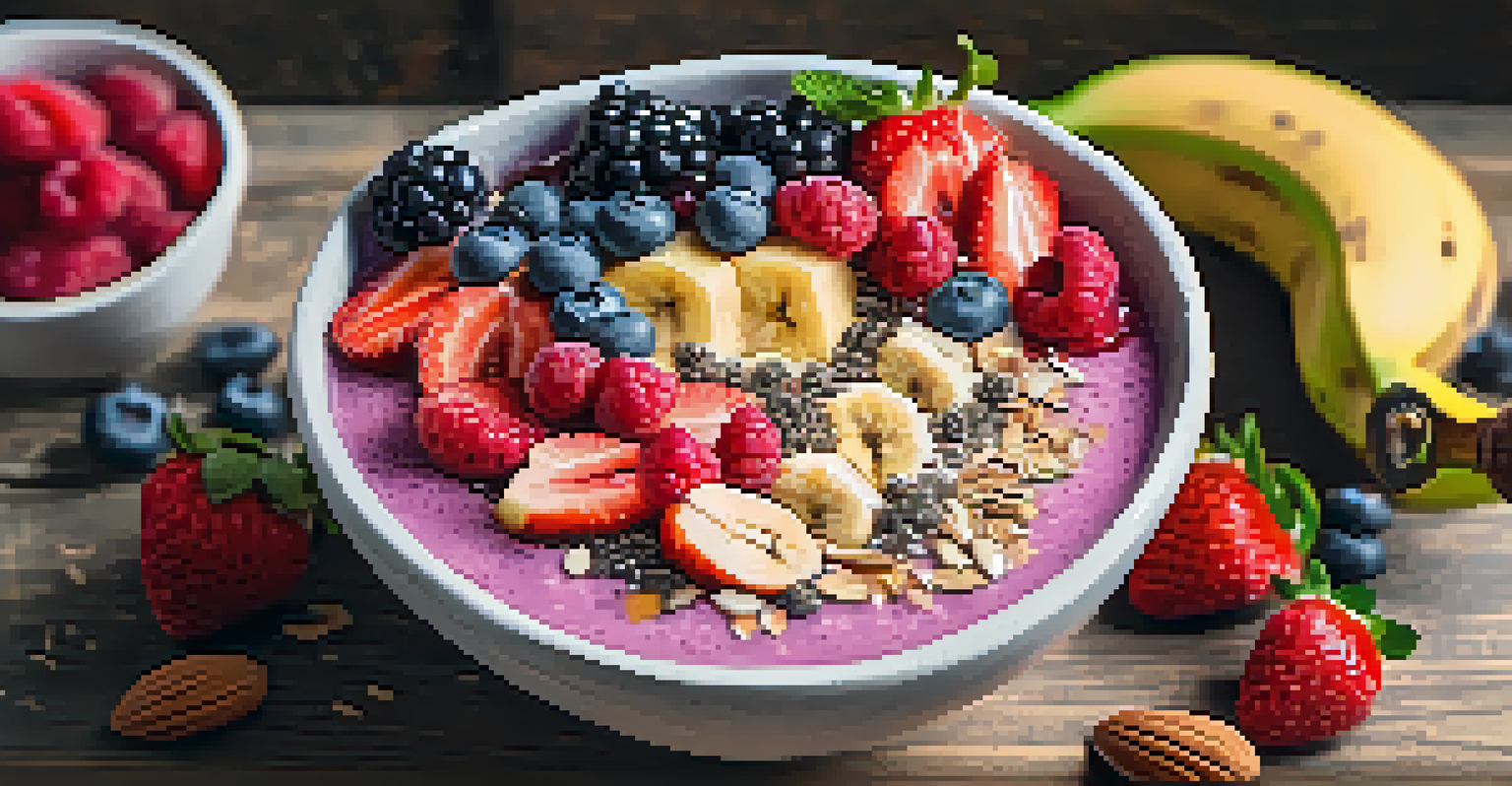The Role of Antioxidants in Nutrient-Dense Raw Foods

What Are Antioxidants and Why Are They Important?
Antioxidants are compounds that help protect our cells from damage caused by free radicals, which are unstable molecules that can lead to oxidative stress. Oxidative stress is linked to various health issues, including aging and chronic diseases. By neutralizing these free radicals, antioxidants play a crucial role in maintaining our overall health.
Antioxidants are the body's natural defense system, constantly on patrol to keep our cells safe from harm.
In the realm of nutrition, antioxidants are celebrated for their ability to boost the immune system and reduce inflammation. They come in various forms, including vitamins C and E, beta-carotene, and flavonoids. Consuming foods rich in these compounds can significantly enhance our body’s defense mechanisms.
Incorporating a variety of antioxidant-rich foods into your diet is essential. Think of them as tiny warriors battling against invisible threats to your health. The more diverse your intake, the better equipped your body will be to fend off these potential dangers.
Nutrient-Dense Raw Foods: A Treasure Trove of Antioxidants
Nutrient-dense raw foods are those that pack a punch in terms of vitamins, minerals, and antioxidants while being low in calories. Examples include leafy greens, berries, nuts, and seeds. These foods not only provide essential nutrients but also contribute to a rich source of antioxidants, making them a smart choice for health-conscious individuals.

When you consume raw foods, you retain more of their natural nutrients, as cooking can sometimes diminish antioxidant levels. For instance, raw broccoli contains more sulforaphane, an antioxidant known for its cancer-fighting properties, compared to its cooked counterpart. This highlights the importance of incorporating raw foods into your diet to maximize their health benefits.
Antioxidants Protect Cell Health
Antioxidants neutralize free radicals, reducing oxidative stress and lowering the risk of chronic diseases.
Diversity is key when it comes to raw foods. Each type offers a unique set of antioxidants, and by mixing them in your meals, you can create a colorful and nutrient-packed plate. Think vibrant salads, smoothie bowls filled with berries, or a handful of mixed nuts for a quick snack.
How Antioxidants Work in the Body
Antioxidants work by neutralizing free radicals in the body, which helps protect cells from damage. This protective action can lead to a reduction in the risk of chronic diseases, such as heart disease, diabetes, and cancer. Imagine them as the body's defense system, constantly on patrol to keep our cells safe from harm.
Let food be thy medicine and medicine be thy food.
Moreover, antioxidants play a vital role in the aging process. By reducing oxidative stress, they can help maintain our skin's elasticity and overall vitality. This is why many people turn to antioxidant-rich foods in hopes of achieving a youthful glow and better skin health.
It's also important to note that while antioxidants are beneficial, balance is key. Too much of certain antioxidants can have adverse effects, so moderation and variety are essential. This is where nutrient-dense raw foods shine, providing a natural balance of nutrients without excess.
Top Raw Foods High in Antioxidants
When it comes to raw foods brimming with antioxidants, berries take the crown. Blueberries, strawberries, and raspberries are not only delicious but also packed with vitamins and compounds that help fight free radicals. Adding them to your breakfast or snacking on them throughout the day is an easy way to boost your antioxidant intake.
Another powerhouse group is leafy greens. Foods like kale, spinach, and swiss chard are not only nutrient-dense but also provide a variety of antioxidants, including lutein and zeaxanthin, which are beneficial for eye health. Incorporating these greens into salads or smoothies can make a significant difference in your overall health.
Raw Foods Are Nutrient-Dense
Incorporating raw foods like fruits, vegetables, nuts, and seeds into your diet maximizes antioxidant intake and overall health benefits.
Nuts and seeds also deserve a mention, as they are rich in vitamin E and other antioxidants. Walnuts, almonds, and chia seeds are excellent choices. Just a small handful can provide a substantial boost to your antioxidant levels and help keep your heart healthy.
The Connection Between Antioxidants and Chronic Diseases
Research has shown a strong link between antioxidant intake and a reduced risk of chronic diseases. For instance, diets high in antioxidants have been associated with lower rates of heart disease and certain types of cancer. This connection emphasizes the importance of incorporating antioxidant-rich foods into our daily diets for long-term health.
Antioxidants help combat inflammation, a key player in many chronic diseases. By reducing inflammation, they can potentially lower the risk of conditions such as arthritis and cardiovascular issues. Eating a diet rich in raw, nutrient-dense foods can play a significant role in managing inflammation.
It's important to remember that while antioxidants can provide protective benefits, they are just one piece of the puzzle. A balanced diet, regular exercise, and a healthy lifestyle are crucial for overall wellness. Antioxidant-rich foods are a great starting point, but they should be part of a comprehensive approach to health.
Incorporating Antioxidant-Rich Raw Foods into Your Diet
Incorporating more antioxidant-rich raw foods into your diet doesn't have to be daunting. Start by adding a handful of berries to your breakfast cereal or yogurt. You can also toss some leafy greens into a smoothie for a nutrient boost without even realizing it. These small changes can make a big difference over time.
Experimenting with different raw food recipes can be fun and rewarding. Try making a colorful salad with a variety of raw vegetables and a sprinkle of seeds or nuts for added crunch. This not only enhances the flavor but also maximizes your antioxidant intake in one delicious dish.
Balance Is Key for Antioxidants
While antioxidants are beneficial, moderation and variety in food choices are essential for optimal health.
Lastly, consider preparing raw snacks for when hunger strikes. Raw veggies with hummus or a mix of nuts and dried fruits can provide a quick, healthy option that keeps you energized throughout the day. By making these simple adjustments, you can easily increase your consumption of antioxidant-rich raw foods.
The Future of Antioxidants in Nutrition
As research continues to evolve, the understanding of antioxidants and their role in nutrition is expanding. Scientists are exploring new ways to enhance the antioxidant content of foods through agricultural practices and food processing techniques. This could lead to an even greater emphasis on the importance of antioxidants in our diets.
Additionally, the rise of plant-based diets highlights the significance of incorporating more raw, nutrient-dense foods rich in antioxidants. As more people shift towards these diets, the demand for antioxidant-rich foods will likely increase, leading to further innovation in this area.

Ultimately, the future of nutrition will likely emphasize a holistic approach, where antioxidants, along with other nutrients, work together to promote optimal health. By staying informed and making conscious food choices, we can all benefit from the ongoing research and discoveries in the world of antioxidants.